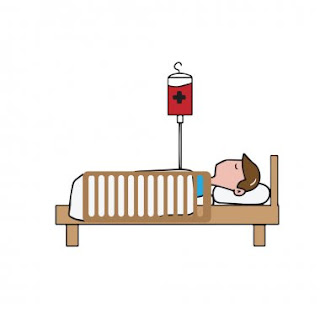Anyone who knows me knows that I enjoy the warmer seasons - the warmer the better. Perhaps it's just my dislike of winter, maybe I was a salamander in a previous life - I don't know for sure. All I know with any certainty is that when I look at all the sunshine outside, I can honestly say that the last thing I want to do is write. I want to play in the grass, run around in the backyard and enjoy the rites of warm weather. Not very helpful for a writer's work habits.
Everyone has these distractions in their life, and it doesn't have to be the weather. Sure, everyone has those childhood memories of being trapped in school trying to learn something while our minds wandered outside to the beautiful weather with its blue skies and open spaces. We forced our way through this distraction somehow, but usually it was because we did not have a choice. It was school - a mandatory sentence of hard time that had to be served regardless of the weather. But now, as writers, we have options and alternatives. It's very easy to set aside our writing and take a walk, go cycling, or just sit under a tree and breathe in the springtime. This is where we test our resolve as to just how serious we are with our writing.No, this is not going to be a post about depriving ourselves of the opportunity to enjoy some nice weather in the name of writing. I am a firm believer in the outdoors, but I believe we need to find a way to merge our wants with our needs in order to effectively enjoy either. Choosing one over the other often creates a little tension inside us, which doesn't pay off in the long run. Rather, the compromise route is the one worth pursuing.
Here's my example. This weekend is supposed to be absolutely beautiful weather: mid-80s, just a few clouds, a breeze not quite strong enough to be called wind - just perfect for spending an afternoon on my bicycle. I also know I have several thousand words I should commit to paper. There's no deadline on the words, but a storm is rolling in Sunday night that will officially end the nice run of weather. The choice I therefore face is whether it's worth it to go cycling for an afternoon and try to do my writing once I'm back, or forgo the nice weather under the assumption that more will show up soon, and just get my writing done.
My compromise goes something like this: Saturday I will go cycling for a few hours. During that time I will do all the non-typing things I have to do with the story I am working on. I will go over the dialogue in my head, I will actually sound out the lines and the voices, getting the wording just right. I will take all the sensory joy of the day around me and turn that inward, using it to fuel my urge to write. I will be outside, but I will get excited about the writing I will soon be engaging in. If I do this properly, I reverse the roles that I might otherwise experience. Instead of being the student looking longingly at the beautiful day outside, I will become the person outside, but I will be anxiously awaiting the moment when I can get back inside and start writing again. I will renew my commitment to writing, but not deprive myself of the other things I enjoy.
And now I need to go outside and charge my batteries for tomorrow - I have a lot of writing to do, and that bicycle won't ride itself.







